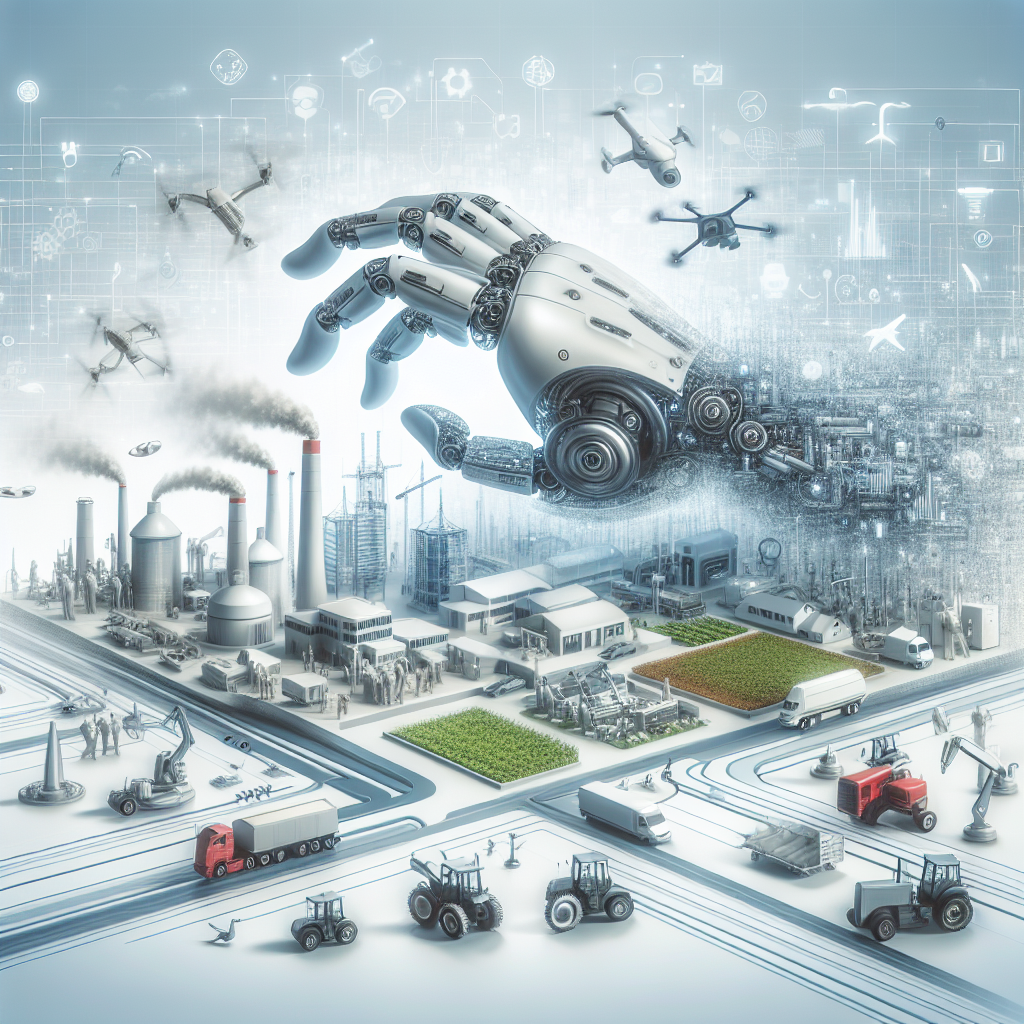Artificial General Intelligence (AGI) and the Future of Work: How Automation Will Change Industries
Introduction
Artificial General Intelligence (AGI) is the next frontier in the field of artificial intelligence. Unlike narrow AI, which is designed for specific tasks, AGI is meant to have the cognitive abilities of a human being. This means that AGI will be able to learn, reason, and solve problems in a way that is indistinguishable from human intelligence.
The potential impact of AGI on the future of work is immense. Automation has already transformed many industries, but AGI has the potential to take this to a whole new level. In this article, we will explore how AGI is likely to change industries, what challenges it may present, and how we can prepare for this new era of automation.
How AGI will change industries
1. Increased efficiency: One of the primary benefits of AGI is its ability to automate tasks that are currently done by humans. This will lead to increased efficiency in many industries, as machines will be able to perform tasks faster and more accurately than humans.
2. New job opportunities: While some jobs may be automated by AGI, new job opportunities are likely to emerge as well. For example, there will be a need for individuals to design, program, and maintain AGI systems, as well as to oversee and regulate their use.
3. Changes in skill requirements: As automation becomes more prevalent, the skills required to succeed in the workforce will change. Workers will need to adapt to new technologies and learn how to work alongside machines in order to remain competitive.
4. Shifts in job roles: Some job roles may become obsolete as a result of automation, while others may evolve to require a different set of skills. Workers will need to be flexible and willing to adapt to these changes in order to remain employable.
Challenges of AGI in the workplace
1. Job displacement: One of the biggest concerns surrounding AGI is the potential for job displacement. As machines become more capable of performing tasks that were previously done by humans, there is a risk that many workers will be left without employment.
2. Inequality: The benefits of automation are not likely to be evenly distributed. Those with the skills and resources to adapt to the changing job market will likely fare better than those who do not. This could exacerbate existing inequalities in society.
3. Ethical concerns: AGI raises a number of ethical concerns, particularly around issues of privacy, security, and bias. As machines become more autonomous, there is a risk that they may make decisions that are harmful to individuals or society as a whole.
4. Regulation and oversight: As AGI becomes more prevalent in the workplace, there will be a need for regulation and oversight to ensure that it is used responsibly. This will require collaboration between governments, businesses, and other stakeholders.
Preparing for the future of work
1. Lifelong learning: In order to remain competitive in the workforce of the future, workers will need to embrace lifelong learning. This means continually updating their skills and knowledge to keep pace with technological changes.
2. Collaboration: As automation becomes more prevalent, it will be important for workers to collaborate with machines in order to maximize their productivity. This will require a shift in mindset, as workers learn to see machines as partners rather than competitors.
3. Reskilling and upskilling: In industries that are likely to be affected by automation, workers will need to reskill or upskill in order to remain employable. This may involve learning new technologies, acquiring new certifications, or developing new competencies.
4. Embracing diversity: In order to ensure that the benefits of automation are shared equitably, it will be important for businesses to embrace diversity in the workforce. This means promoting gender, racial, and socioeconomic diversity, as well as ensuring that workers of all backgrounds have access to training and development opportunities.
FAQs
Q: Will AGI replace all human workers?
A: While AGI has the potential to automate many tasks currently done by humans, it is unlikely to replace all human workers. There will still be a need for human creativity, empathy, and problem-solving skills in many industries.
Q: How can workers prepare for the future of work?
A: Workers can prepare for the future of work by embracing lifelong learning, collaborating with machines, reskilling and upskilling, and embracing diversity in the workforce.
Q: What role will governments play in regulating AGI in the workplace?
A: Governments will play a critical role in regulating AGI in the workplace. They will need to establish guidelines for the use of AGI, ensure that workers are protected from job displacement, and address ethical concerns related to automation.
Q: What industries are likely to be most affected by AGI?
A: Industries that rely heavily on manual labor or routine tasks are likely to be most affected by AGI. This includes industries such as manufacturing, transportation, and customer service.
Conclusion
AGI has the potential to revolutionize the future of work, leading to increased efficiency, new job opportunities, and changes in skill requirements. However, it also presents challenges such as job displacement, inequality, ethical concerns, and the need for regulation and oversight. In order to prepare for this new era of automation, workers will need to embrace lifelong learning, collaborate with machines, reskill and upskill, and embrace diversity in the workforce. By taking proactive steps to adapt to the changing job market, workers can ensure that they remain competitive in the age of AGI.

